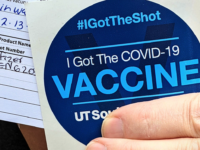The global struggle for access to COVID-19 vaccines took a dramatic turn recently as the Biden Administration in the United States unexpectedly reversed its longstanding opposition to a patent waiver designed to facilitate access to vaccines in the developing world. The shift seemingly caught many by surprise. Pharmaceutical companies were quick to voice opposition and U.S. allies found themselves being asked to take positions. That was certainly the case in Canada, where the Canadian government has steadfastly refused to support the waiver with repeated claims that it had yet to make a decision.
Ellen ‘t Hoen, is a lawyer and public health advocate with over 30 years of experience working on pharmaceutical and intellectual property policies. From 1999 until 2009 she was the director of policy for Médecins sans Frontières’ Campaign for Access to Essential Medicines. In 2009 she joined UNITAID in Geneva to set up the Medicines Patent Pool (MPP). Ellen is currently the director of Medicines Law & Policy and a researcher at the University Medical Centre Groningen. She joins the Lawbytes podcast this week to talk about the fight for a patent waiver and the implications of the Biden decision for global access to COVID vaccines.











